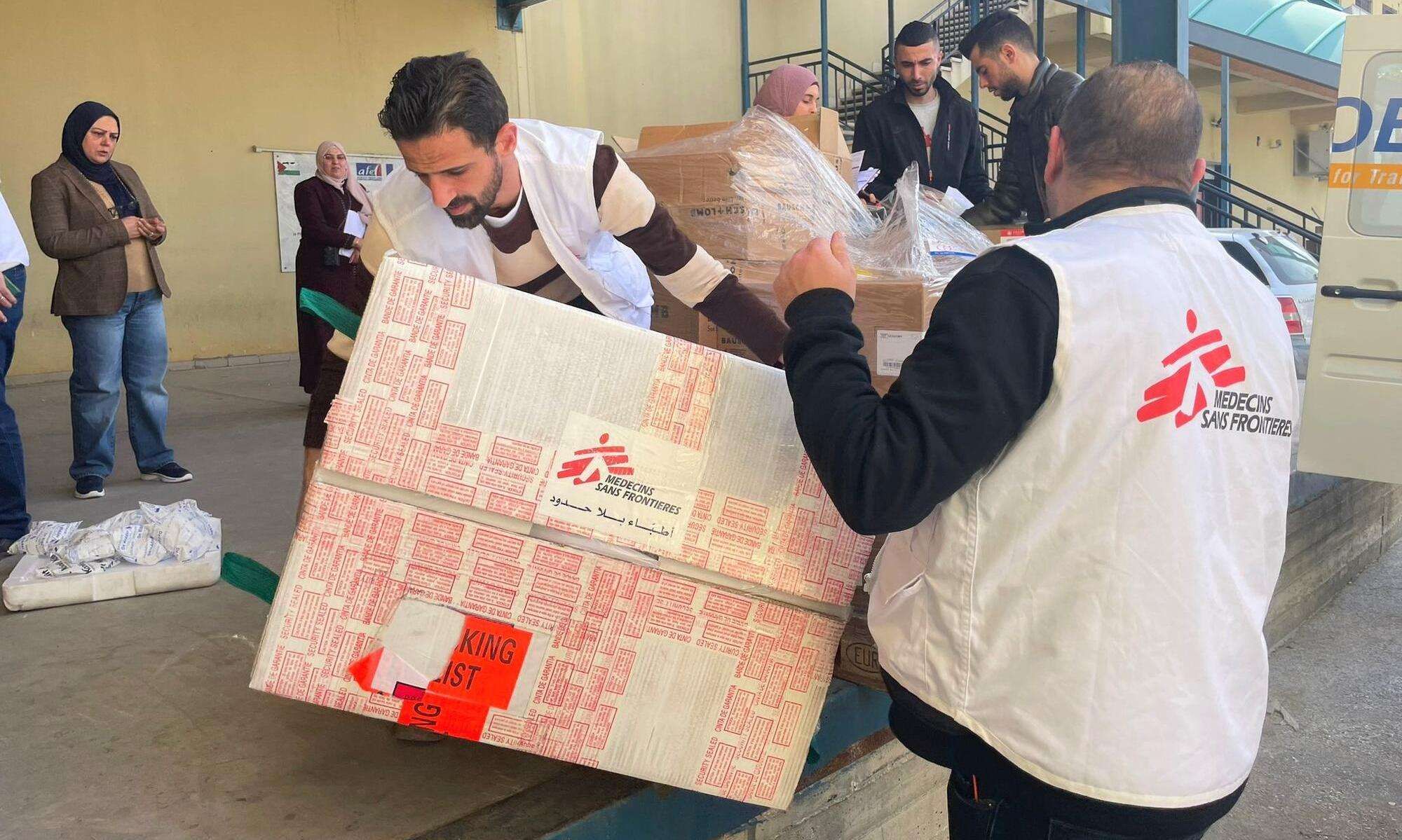NEW YORK, FEBRUARY 28, 2023—The international medical humanitarian organization Doctors Without Borders/Médecins Sans Frontières (MSF) is continuing to provide mental health services in the West Bank city of Nablus following recent violence against Palestinians and the implementation of new movement restrictions.
A raid by Israeli forces in Nablus killed 11 Palestinians and injured more than 100 on February 22. Shortly after, on February 26, two settlers were shot and killed in the Nablus suburb of Huwara, which led Israeli forces to close access to the city. That same night, settlers set fire to Palestinian property including cars, houses, and shops, injuring approximately 400 people and killing one, according to the Palestine Red Crescent. Following the incident last week, MSF donated medical equipment and emergency kits to a local clinic and hospital.
Incidents like these affect MSF operations and the mental health of Palestinians.
“Checkpoints around Nablus are closed as a result of Sunday’s violence, which on Monday kept our staff from going to the nearby city of Qalqilya, where we also provide mental health services,” said Tareq Zaid, MSF field coordinator in Nablus.
Nablus residents have experienced an uptick in blockades in the first months of 2023 as violence increases throughout the West Bank, reaching levels not seen since 2000. Movement restrictions in the city limit access to MSF services for residents, who fear for their safety when leaving their homes. Road closures also affect MSF staff trying to reach their workplaces.
“Within less than a week, the city of Nablus experienced two incidents that have kept our patients from accessing our clinics and affected our staff,” said Linda Gaouaou, MSF head of mission in Jerusalem. “These incidents reflect the norm of the past few months: a state of permanent tension in which the population has to navigate its life around recurring city closures by Israeli forces."
Violence and restrictions harm staff and patients in West Bank
In Nablus, movement restrictions limit access to health care as violence increases to levels unseen since 2000.

Palestinian Territories 2023 © Daphné Desrochers-Morrissette/MSF



